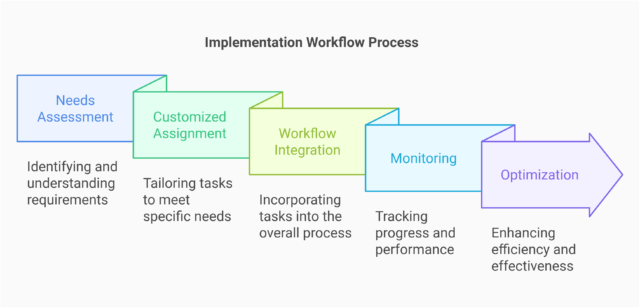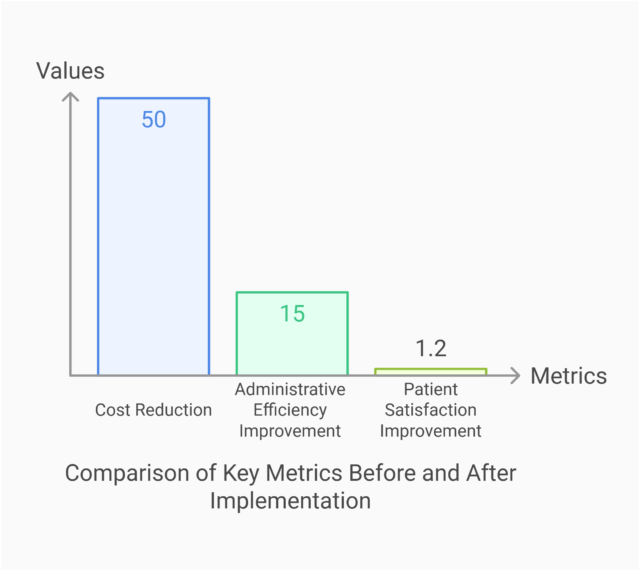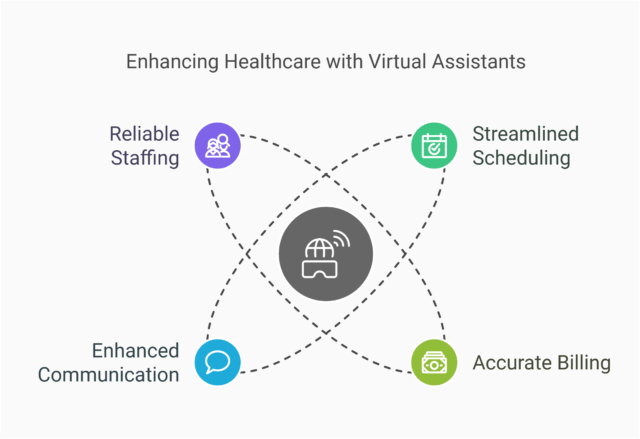Abstract
The administrative burdens of managing an allergy and immunology practice often disrupt workflows and detract from patient care. This study examines the implementation of Rekha Tech LLC’s Virtual Assistant for Allergy and Immunology services at a mid-sized clinic. The tailored solution addressed key challenges, including staff shortages, administrative overload, and cost pressures, leading to measurable improvements in efficiency, patient satisfaction, and operational stability. Graphs and flowcharts are used to illustrate the implementation process, challenges, and outcomes.
Introduction
Allergy and immunology practices face numerous operational challenges, including:
- Recruitment Difficulties: Finding qualified administrative staff with expertise in allergy and immunology-specific workflows is time-consuming.
- High Turnover Rates: Frequent staff changes disrupt workflows and increase costs.
- Administrative Overload: Tasks such as scheduling, billing, and record-keeping overwhelm in-house teams.
- Cost Pressures: The financial burden of full-time staff salaries, benefits, and training strains resources.
- Patient Satisfaction Concerns: Inefficiencies in communication and operations impact patient trust.
Rekha Tech LLC’s Virtual Assistant services provided a scalable solution to address these challenges.
Virtual Assistant Integration Process
Methods
The implementation process was structured into five phases:
- Needs Assessment: Identifying pain points and operational gaps.
- Customized Assignment: Deploying a virtual assistant trained in allergy and immunology workflows.
- Workflow Integration: Aligning virtual assistant tasks with existing systems (e.g., scheduling software, billing systems).
- Performance Monitoring: Tracking metrics such as scheduling efficiency, billing accuracy, and patient satisfaction.
- Continuous Optimization: Refining workflows based on performance data.


Key Metrics of Improvement
Results and Analysis
1. Cost Efficiency
- Pre-Implementation Costs: $45,000/month (salaries, benefits, and training).
- Post-Implementation Costs: $20,000/month (virtual assistant fees).
- 50% reduction in operational costs.
2. Administrative Efficiency
- Pre-Implementation: Staff spent 65% of time on administrative tasks.
- Post-Implementation: Staff spent 80% of time on patient care.
3. Patient Satisfaction
- Pre-Implementation: Average rating: 3.5/5.
- Post-Implementation: Average rating: 4.7/5.
- 18% improvement in patient satisfaction.
Key Benefits of Virtual Assistance
Discussion
- Streamlined Scheduling: Reduced no-shows by 30% with automated reminders.
- Accurate Billing: Fewer claim denials and faster reimbursements improved cash flow.
- Enhanced Communication: Prompt responses to patient inquiries built trust and loyalty.
- Reliable Staffing: Consistent administrative support reduced disruptions caused by turnover.
Role of Medical Virtual Assistants
The integration of virtual assistants demonstrated the essential role of technology in modernizing healthcare operations. Allergy and immunology practices can significantly benefit from outsourcing administrative tasks to focus on delivering superior patient care.

Conclusion
Key Outcomes
- Cost Reduction: 50% decrease in operational expenses.
- Increased Efficiency: 80% of staff time redirected to patient care.
- Higher Patient Satisfaction: 18% improvement in ratings.
Strategic Implications
Investing in virtual assistant services is a forward-thinking strategy for allergy and immunology practices. Rekha Tech LLC’s tailored solutions empower clinics to overcome staffing and operational challenges, setting the foundation for sustainable growth and excellence in patient care.
Future Directions
Further studies could explore:
- The long-term impact of virtual assistants on revenue growth.
- Expansion of virtual services to multi-specialty clinics.
- Innovations in AI-driven virtual assistance to enhance scalability.
Ready to Transform Your Practice?
Get started with Rekha Tech LLC and let us simplify your dental practice operations today!


